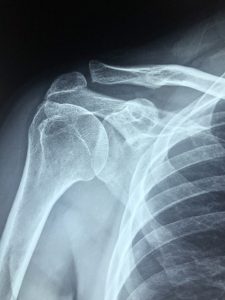The shoulder is one of the most mobile and complex joints in the human body, capable of an impressive range of motion that allows us to perform everything from simple daily tasks to high-level athletic activities. However, this complexity also makes it vulnerable to various conditions and injuries. Understanding the causes, symptoms, and treatments of common shoulder problems can help you identify issues early and seek appropriate care.
Rotator cuff tears
Rotator cuff tears are among the most frequently encountered shoulder injuries. The rotator cuff consists of four muscles and tendons that work together to stabilize the shoulder and facilitate movement. These tears can occur suddenly, such as during a fall, or develop gradually due to repetitive strain or age-related wear and tear. Common symptoms include persistent pain, weakness, and difficulty lifting the arm. While some tears can be managed with rest, physical therapy, and anti-inflammatory medications, severe cases often require surgical intervention to restore function.
shoulder impiNGEMENT
Another prevalent condition is shoulder impingement syndrome, which occurs when the tendons of the rotator cuff are compressed or pinched between the shoulder bones. This condition is often caused by repetitive overhead activities or poor posture, leading to pain and stiffness that worsens when raising the arm. Treatment typically begins with activity modification and physical therapy to improve shoulder mechanics. In cases where symptoms persist, anti-inflammatory injections or surgery may be necessary.
frozen shoulder
Frozen shoulder, or adhesive capsulitis, is another challenging condition characterized by a gradual onset of pain and stiffness. This condition is more common in individuals with certain medical conditions, such as diabetes, or those who have had prolonged shoulder immobility due to injury or surgery. Frozen shoulder progresses through stages, beginning with increasing pain, followed by significant stiffness, and finally, a gradual improvement in mobility. Treatment focuses on physical therapy to regain motion, with corticosteroid injections or surgical intervention used in more severe cases.
shoulder dislocations
Shoulder dislocation and instability are other common issues, particularly in active individuals or those with a history of trauma. Because the shoulder joint has an inherently unstable ball-and-socket structure, it is prone to dislocations, which occur when the ball of the joint is forced out of its socket. Symptoms of dislocation include intense pain, visible deformity, and an inability to move the arm. Initial treatment involves reducing the joint back into place, followed by physical therapy to strengthen stabilizing muscles. Surgery may be needed for recurrent dislocations or ligament damage.

Shoulder arthritis
Osteoarthritis of the shoulder is a degenerative condition that occurs when the cartilage cushioning the joint wears down over time. This results in deep, aching pain, stiffness, and sometimes a grinding sensation during movement. Although osteoarthritis cannot be reversed, its symptoms can be managed through physical therapy, activity modification, medications, and injections. Advanced cases may require shoulder replacement surgery to restore function and alleviate pain.
shoulder bursitis
Another inflammatory condition, bursitis, involves irritation of the bursa, a small fluid-filled sac that helps reduce friction in the joint. Bursitis often arises from overuse or trauma, causing tenderness, swelling, and pain that worsens with movement or pressure. Rest, ice, anti-inflammatory medications, and physical therapy are the primary treatments, with corticosteroid injections or surgery considered in more severe or persistent cases.
prevention
Preventing shoulder problems involves maintaining good posture, warming up before physical activities, and strengthening the shoulder and surrounding muscles. However, some conditions cannot be fully prevented due to factors like aging or predisposing health conditions. If you experience persistent shoulder pain, swelling, or a significant loss of mobility, it is essential to consult a healthcare provider. Early diagnosis and treatment can prevent further complications and help restore optimal shoulder function.
when to seek medical attention
Shoulder health plays a crucial role in maintaining an active and independent lifestyle. If you are experiencing pain or discomfort, our orthopedic specialists are here to provide expert care. Contact us today to schedule a consultation and take the first step toward relief and recovery.